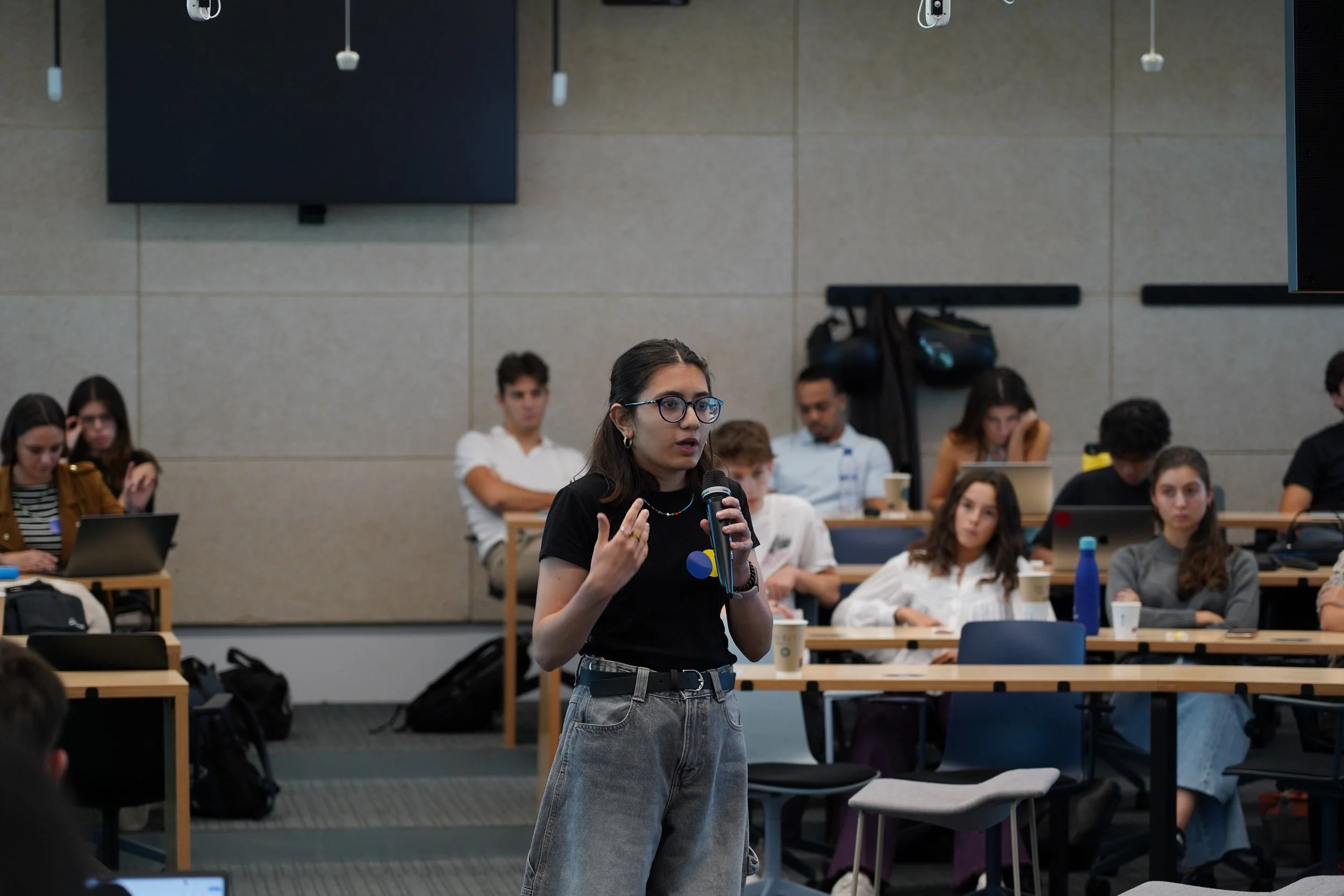Final Presentations
General Guidelines
Finals
February 12th, 17:00, Aula Magna, Maria de Molina 11
-
Final presentation (if advancing) must be submitted by 13h00 on February 12th to the Coordinator of the TVB.
-
All presentations will be delivered in person. Presentations may be delivered by one or more team members. However, ALL team members will attend in person.
-
Each finalist team presents a 5-minute presentation, followed by a 5-minute Q&A.
Jury deliberates for 30 minutes.
Note: A special award will be given under the Continuity & Innovation category: Awarded to teams that build upon or significantly improve existing ideas or technologies, showing technical depth and creativity while enhancing impact, usability, or scalability.
-
External jury formed by industry and academic experts.
-
Grading Criteria:
Technical Work 50%
Business Model 20%
Impact & Growth 20%
Quality of the Presentation 10%
Each criteria have a maximum of 5 points (0-5)
-
Prizes:
First Place: 450€ (in Amazon gift card)
Awarded to the project that demonstrates outstanding technical excellence and innovation, supported by a solid business rationale, clear potential for impact and growth, and a strong, professional presentation.Second Place: 375€ (in Amazon gift card)
Awarded to a project with strong technical implementation and a well-developed solution, complemented by a coherent business model, meaningful impact, and effective communication.Continuity & Innovation Award: 375€ (in Amazon gift card)
Awarded to teams that build upon or significantly improve existing ideas or technologies, showing technical depth and creativity while enhancing impact, usability, or scalability.Additional Rewards:
Exclusive access to events and networking opportunities.
Recognition on IE University’s official channels.
Certificates: Digital certificate for all participants who attended at least 80% of the program.
Sustainable Impact Award
The Sustainable Impact Award is a new initiative launching at IE University’s Fall 2025 Tech Venture Bootcamp. Powered by Cinnovate under the EIT Higher Education Initiative and Horizon Europe, with support from EIT Climate-KIC, it aims to drive innovation and systemic change by integrating sustainability principles with technology.
🏆 What’s the Award About?
The award recognizes ventures that embed circularity and sustainability at their core. Winners will receive:
A 3-hour mentorship package with sustainability and entrepreneurship experts to continue accelerating your idea
A Certificate in Applied Sustainable Innovation upon completion
Projects will be evaluated using a structured rubric across six criteria (See below).
Assessment Criteria for Sustainable Impact Award
Jury members will assess participants using the Sustainable Impact Award rubric. They will evaluate submissions based on sustainability integration, circular economy principles, life cycle thinking, innovation, stakeholder value, and communication.
-
25% Is sustainability clearly embedded in the project’s purpose, strategy, or operations? Are there defined environmental or social goals?
-
20% Does the project consider systemic approaches such as circular economy, regenerative practices, or resource efficiency? Is there a shift away from linear models?
-
20% Has the team identified key sustainability impacts (e.g. emissions, waste, equity)? Are there efforts to measure or estimate these impacts, even at a basic level?
-
15% Is the solution novel in how it addresses sustainability challenges? Is it technically and economically viable, with potential for scale and positive impact?
-
10% Does the project create meaningful value for users and communities? Are stakeholders (e.g. customers, partners, regulators) considered or involved?
-
10% Is the sustainability story clearly communicated? Does the project contribute to broader goals (e.g. SDGs, climate action, social equity)?






